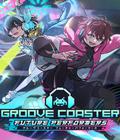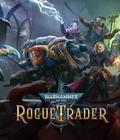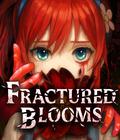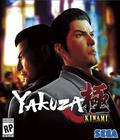Genre: Action
Publisher: Sega
Developer: Sega
Release Date: September 5, 2006
When Sega ported Shenmue II to the Xbox, it came pre-bundled with a second disc entitled "Shenmue: The Movie." It was essentially a compilation of the first game's cut scenes, interspersed with a few of its fights, in order to create a cohesive whole. While it was merely meant as a primer to allow people who'd never played the original on Dreamcast to catch up on the story, more than a few people noticed that the game was actually a bit more palatable this way. It was certainly easier to understand now that its story was all in one neat place.
I wouldn't mind such a process happening with Yakuza. Not only is that a shame, it shows just how much of a spiritual successor to Shenmue Yakuza truly is.
Yakuza is a martial arts drama about Kiryu Kazama, a rising star of Japanese organized crime (specifically, the "Dragon of the Dojima Clan"). One fateful night in the mid-'90s, his girlfriend is kidnapped, and he rushes to her apparent holding place. Upon arriving, he finds the gun which has just killed the top-ranking captain of his clan in his best friend's hand. Knowing that his friend has far more to lose than he does, he takes the blame, the sentence, and the shame ... ironically, all for the sake of honor.
Flash-forward past 10 grueling years of prison. The world is now a very different place, and this includes Tokyo. Technology's advanced, the city has new establishments, and the Yakuza is run by two warring factions. Kiryu is trying to put together the pieces of his shattered life, and to find what's happened to everyone he knew. Unfortunately, at the same time, chaos breaks out between the Yakuza clans regarding a hefty sum of 10 billion yen being stolen from their treasury's safe. Now it's all Kiryu can do to solve the mystery, find out what a little girl's connection is to the whole drama, and keep his head attached to his shoulders in the process.
As you can see, the story is very Japanese in nature – almost overly so for anyone not a native of the country. For anyone not having at least an introduction to Japanese culture, it can be tough to keep track of all of the names, titles, and designations that each character has, even with the game's built-in encyclopedia. One will have to, however, because Yakuza's story is by far its strongest point, and it will be the most players' main motivation for seeing this game through to the end.
One of the reasons Shenmue was praised for its gameplay as well as its story was because it was backed by Yu Suzuki of Sega's AM2 studio. Recognize those names? They're responsible for Virtua Fighter, the deepest fighting game on the planet. Virtua Fighter's pedigree was instantly apparent in Shenmue. The fighting engine here, unfortunately, comes nowhere near that mark. It's your standard canned combo beat-'em-up, done in three dimensions, and badly done in three dimensions besides. Gaze in horror as Kiryu constantly misses punch and kick combos, only landing one hit out of an entire string because while analog control is supported, an analog directional axis is not!
The game sports a level-up system that allows you to upgrade Kiryu's stamina and give him extra combination attacks. There is also an equipment system where you can equip weapons (each which give Kiryu special moves) and gear. Sadly, none of this helps the fundamental fighting system any, nor do the game's special mechanics such as strafing. Giving the game extra combos doesn't make it any deeper; it just gives you a few more (admittedly, sometimes good looking) ways to plod against enemies that are easy to get past so long as you make sure not to get surrounded and consequently spaz out on the controls. The game never gives you the sense that Kiryu is an extension of your mental fist. You're always just controlling some guy who has trouble aiming his punches. It's like fighting drunk. When the best tactic you have is completely take your hands off of the directional controls when you manage to land a hit on somebody, you know there's trouble.
The troubles with the fighting engine don't make the game unplayable by any means; they merely drag the otherwise spectacle that is the rest of the game into mediocrity. What's a fighting game where you're trying to get past the fighting as quickly as possible so as to get back to the non-interactive parts? It's a game that's lost its way. This is why it's a shame. Yakuza has got so much going for it in every other aspect.
I've mentioned in this game's preview just how pretty everything is, and that hasn't changed. Walking along the streets of Tokyo, you get the feeling that you're in a giant city full of life. It comes at the cost of loading screens that border on excessive, but when you get caught up exploring the streets, watching a Jumbotron, eating in shops, going to arcades and watching out not to bump into people, you'll find that those loading screens are worth it for the atmosphere that they provide.
The soundtrack is also pleasing to the ears and really helps to get the story across. Fight music is satisfying, as well as the rest of the game music, which runs the range from somber to heart-pounding. The crunches of your fists and feet against your enemies is second to none, and the chatter of the people in the city really helps toward the Tokyo atmosphere. The only sound issue to take note of, naturally, is the game's English dubbing, which has its ups and downs. Purists will loathe the fact that there's no Japanese language option available, even though the game allows the use of subtitles. What's worse is that most of the characters now speak with decidedly American accents, even the ones given otherwise well-done voices. Mispronounced Japanese vowels run rampant. It's probably for the best, as the choice was to either speak normally or try to craft horrible fake Japanese accents, but it still frustrates. Fortunately, everyone speaks with feeling and emotion. The language may have been mangled, but at least it's mangled well.
When people ask me whether or not Yakuza's good, I tell them that I like it, but it honestly may not be for everyone. The best audiences for this game, oddly enough, are Japanophiles and RPG players, which is strange considering that this is hard-nosed interactive cinema fused with a beat-'em-up. If you like a good story and aren't spoiled on fighting engines, Yakuza may be good for you. The rest of us can rent it. This game is what the phrase "close, but no cigar" was made for.
Score: 7.0/10
More articles about Yakuza Kiwami











 Yakuza Kiwami is a thrilling action-adventure game that takes players deep into the world of Japan's infamous underground organization.
Yakuza Kiwami is a thrilling action-adventure game that takes players deep into the world of Japan's infamous underground organization.





























